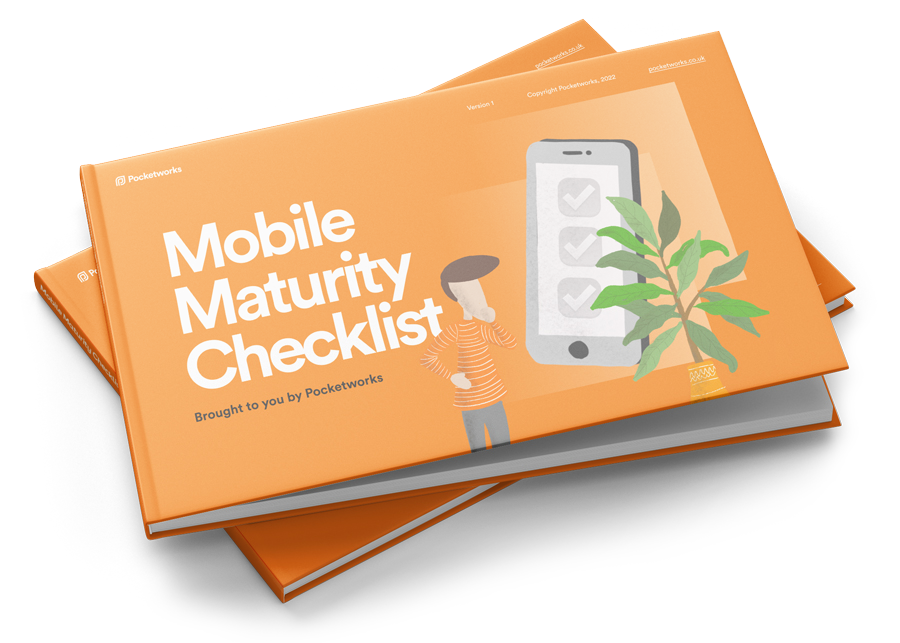Founders and directors involved in app development often see the discovery phase as a waste of time. They already know what will work for their customers, so what's the point of doing discovery? Just build it!
Gartner research shows that companies that do product discovery well are 12 times more likely to create products that succeed. This should translate to more customer satisfaction, repeat business and revenue growth.
So why do executives find it so frustrating? And, if you're one of those executives who dislikes the discovery phase, how can you embrace it as an opportunity, rather than seeing it as a pointless exercise?
In this post, I'll tackle these issues and urge you to try and replace confidence with curiosity, control for collaboration, and emphasis on outcomes over outputs.
You know your customers and your market
The chances are you've worked in your industry for a long time. You understand what makes customers tick and you know how the market is changing.
The problem is, you are not your customer. Your knowledge is going to get you a long way, but isn't it possible there are still unknowns? Could new knowledge increase your chances of success?
Another problem with knowing your customers and market too well is that it's easy to become complacent. Just because you've been successful in the past, doesn't mean you'll continue to be successful in the future. The world changes and so do customer needs.
What if you were to do actual market research, interview customers and learn how they think today? Would you learn anything new? The likely answer is "yes". And this is exactly what discovery is for. You use it to discover new things so you can solve a real problem and generate ideas from a more informed perspective.
This is exactly what disruptive industry leaders are doing. Fender conducted the most extensive market research in their industry to uncover new facts and pain points. This eventually lead them to launch new digital products for aspiring musicians that gained millions of users in months.
So what's holding you back? Why do you doubt the usefulness of discovery?
You are confident in your ideas
Business leaders are naturally confident, so they come up with great ideas they believe in. If this sounds like you, you are probably already great at telling stories and presenting ideas in a compelling way. You've been successful in the past and have built a lot of experience. What you might not realise is that this confidence can be a double-edged sword when it comes to product development.
On one hand, it's great to have conviction in your ideas and be able to sell them to others. On the other hand, it can make you resistant to feedback and new ideas. It can make you blind to the fact that there might be a better way of doing things.
The danger is that if you're too confident in your ideas, you'll end up building something that your customers don't want or need. You'll waste time and money on something that nobody uses.
You won't want to hear this, but I see this happen all the time.
Again, doing discovery requires you to be curious rather than confident. To be as aware of the things you don't know as those you do. To have an experimental mindset that asks "will this work?" rather than dictating "this will work".
Product discovery works against you
I know what you're thinking; your idea is rock solid so all you need to do is build it. Why should you pay people to go away and discover evidence that might oppose your ideas?
To get over this one, I'd suggest you start to think of discovery as a team effort. Something you can and should play a part in. Ask your team to be involved in the discovery process, so you become a participant rather than a recipient.
You might not be a user researcher, but discovery isn't limited to just customer research. Discovery involves identifying unknowns which aren't all just related to customer behaviours. There are tasks you could be doing to help discover a better way forward. Some examples are:
- Financial modelling: how long will it take for this idea take to return on investment?
- Pitches: what do our partners think of this idea?
- Pre-sales: can we convince customers to sign up for this?
- Competitor research: how does our idea fit into the competitive landscape?
- Supplier negotiations: can we get a good deal on buying some data/product/service needed for this idea?
Ask your app development team if you can help with any of those things.
As an aside, this site has a useful list of experiments you can try for testing product ideas.
In summary, try to get involved in discovery so you move from commanding people to "build this" to collaborating with them to discover "how can we solve this problem?".
Product discovery takes too much time
All this research will take time and isn't needed, because the ideas on the table are good enough already. Let's just crack on and build it, right?
In my experience, there is no easy way to break this way of thinking. You have to let the process play out a few times and learn how to get value from it. This is hard when you have good ideas and you just want to execute them.
Forrester report that companies doing product discovery right are seeing a 50% reduction in time to market and a 30-60% reduction in development costs.
What if this is an opportunity for you to level up your organisation's digital prowess? What if you could learn about the process and become an ambassador?
So while it might feel like discovery is taking too long, the truth is that it will save you time and money in the long run. With the proper discovery process, you can avoid building something your customers don't want or need.
There is more good news too, which is often overlooked. Discovery can be about shipping too. However, instead of shipping a complete product, you ship enough to learn what you need to know.
Let's look at how Nike do it; they deeply understand their customers and know how to wield data to their advantage. They are incredibly digitally capable create products that hyper-focus on their most passionate fans to great effect.

